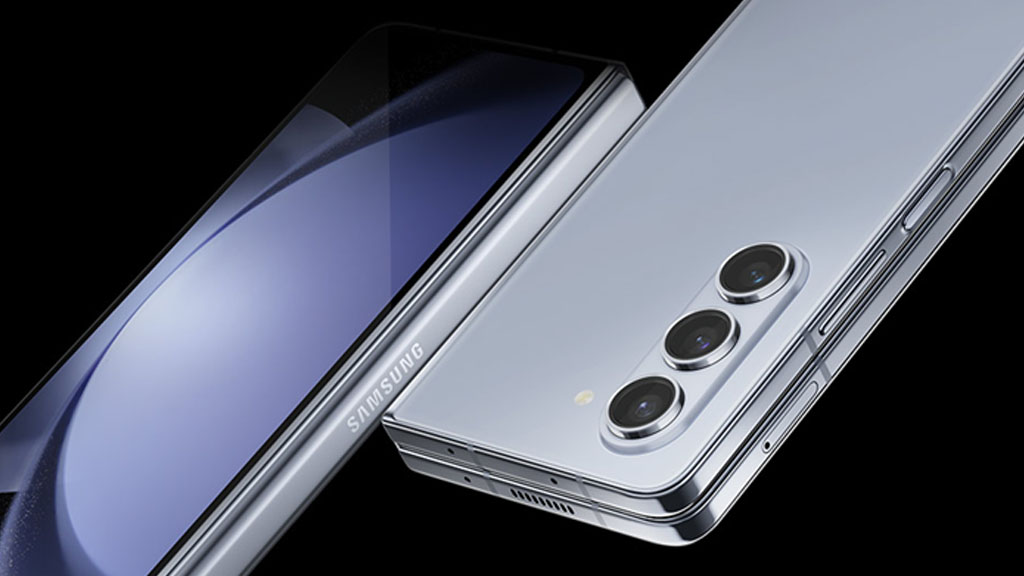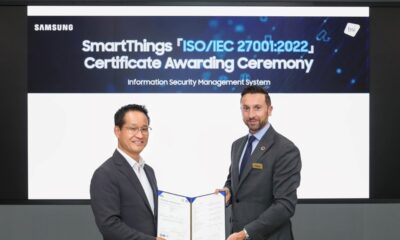News
Samsung Galaxy Z Fold 6, Flip 6 to launch in July 2024 before Paris Olympics

Samsung seems to be considering Galaxy Unpacked two weeks before the Paris Olympics begins in July 2024. The company might introduce many new Galaxy products including foldable phones, new smartwatches, premium earbuds, and Galaxy Ring.
ETNews reports that Samsung might launch the Galaxy Z Flip 6 and Fold 6 two weeks before the Paris Olympics. There are no specific details known, meanwhile, the Korean tech giant will hold a local event 15 days before the opening of this year’s Paris Olympics.
Notably, the Paris Olympics is set to kick off on July 26, 2024, therefore, the next Unpacked could take place in the second week of July this year. This year’s Z Fold model might debut a different form factor as well as lesser weight over its predecessor, the report mentions.
Additionally, ETNews expects that Samsung has made the hinge more precise. As a result, the crease on foldable phones will be less visible than their predecessors. Similar to the Fold 5 and Flip 5, there will be no gap in the center area when folded.
Stay up-to-date on Samsung Galaxy, One UI & Tech Stuffs by following Sammy Fans on X/Twitter. You can also discover the latest news, polls, reviews, and new features for Samsung & Google Apps, Galaxy Phones, and the One UI/Android operating system.
Do you like this post? Kindly, let us know on X/Twitter: we love hearing your feedback! If you prefer using other social platforms besides X, follow/join us on Google News, Facebook, and Telegram.
News
Here’s why Google Messages replaced Samsung Messages on Galaxy devices

Samsung’s latest foldable phones come with Google Messages by default. The company has now revealed the reason behind this move on Galaxy devices. Samsung says Google Messages replaced Messages to foster RCS adoption.
According to AndroidAuthority, a source explained Samsung’s decision to switch to Google Messages as the default messaging app. The recently released Galaxy Z Flip 6 and Z Fold 6 come with Google Messages with RCS enabled by default.
Looks like promoting Google Messages on Galaxy devices will boost RCS adoption. Samsung Messages isn’t already installed on newer phones. However, one’s stopping you from getting it on your Galaxy from the Galaxy Store.
While many apps support the RCS feature, Google Messages offer the best user experience. Making it a default messaging app is an effort to boost the adoption of RCS tech. Apple is also preparing to bring RCS chat functionality to iMessage for iPhones.
What Samsung source said:
- Even if messaging apps follow the RCS standard, the availability may be limited depending on which app the other party uses. That’s why we decided to make Google Messages the common messaging platform, allowing Galaxy users to communicate more freely. This also enables a messaging app to respond to changes of the RCS standard more quickly and efficiently.
Previously, Samsung devices launched in the US came with two messaging apps. This time, the company has removed the Samsung Messages. During the first setup, users are notified that Google Messages is the default messaging application.
News
Samsung SmartThings gets ISO 27001 certified

Samsung SmartThings gained the international standard ISO/IEC 27001:2022 certification. The company has officially announced this major development in its global connected living platform.
SmartThings received ISO/IEC 27001:2022 certification for information security management systems. Certification reiterates that the SmartThings Cloud operates per international standards.
To be certified, a company has to meet the standard across a total of 123 detailed items, including policies for information security, access control for information assets, and incident response.
SmartThings receiving the ISO 27001 certification is the result of our sustained focus on the protection of information in a hyper-connected world with exponentially increasing intelligence.
Seungbum Choi, Executive Vice President and Head of Device Platform Center at Samsung Electronics said “this is just another step in our drive to fortify the platform’s security. We will continue to find new ways to ensure that SmartThings’ personalized services are provided even more safely.”

BSI Prez says that they have recognized that the operation capability and security level of Samsung SmartThings is excellent. It will further boost trust in the SmartThings platform and strengthen business competitiveness.
ISO 27001 is the leading global standard for ISMSs and was established by the International Organization for Standardization. It provides companies with guidance to manage the risks to information assets systematically and achieve information protection goals.
News
Dr.diary fuels Samsung Health with glycated hemoglobin algorithm
Samsung Health app integrated the Dr.diary (Doctor Diary) glycated hemoglobin feature. The blood sugar management platform announced the launch of its glycated hemoglobin estimation functionality on Samsung’s Health application.
According to ETNews, Dr.diary announced the integration of a glycated hemoglobin level feature in Samsung Health. Galaxy users will now be able to check the estimated glycated hemoglobin level provided by Doctor Diary.
To activate the feature, Health app users will have to permit certain conditions of data in the Blood Sugar service. It is worth noting that glycated hemoglobin is a key figure for diabetes diagnosis, which users will find worth using in the Health app.
Established in 2017, Dr.diary is a blood sugar management platform. It analyzes and predicts the changes in glycated hemoglobin using its own algorithm. Earlier this year, the firm secured a patent for “glycated hemoglobin estimation based on blood sugar data table.”
Song Je-yoon, CEO of Doctor Diary, said, “With our predicted glycated hemoglobin level prediction algorithm being installed in Samsung Health, more people will be able to recognize their glycated hemoglobin level and manage their health more efficiently.”

Glycated hemoglobin (HbA1c) is a standardized numerical value of the percentage of hemoglobin, such as hemoglobin, which has been glycated by glucose. Glycated hemoglobin reflects the average blood sugar level over the past 2-3 months.
Samsung Health (with Wear OS Galaxy Watch) users can conveniently check their estimated glycated hemoglobin level within the app and use this information to manage their blood sugar levels through diet and exercise.












